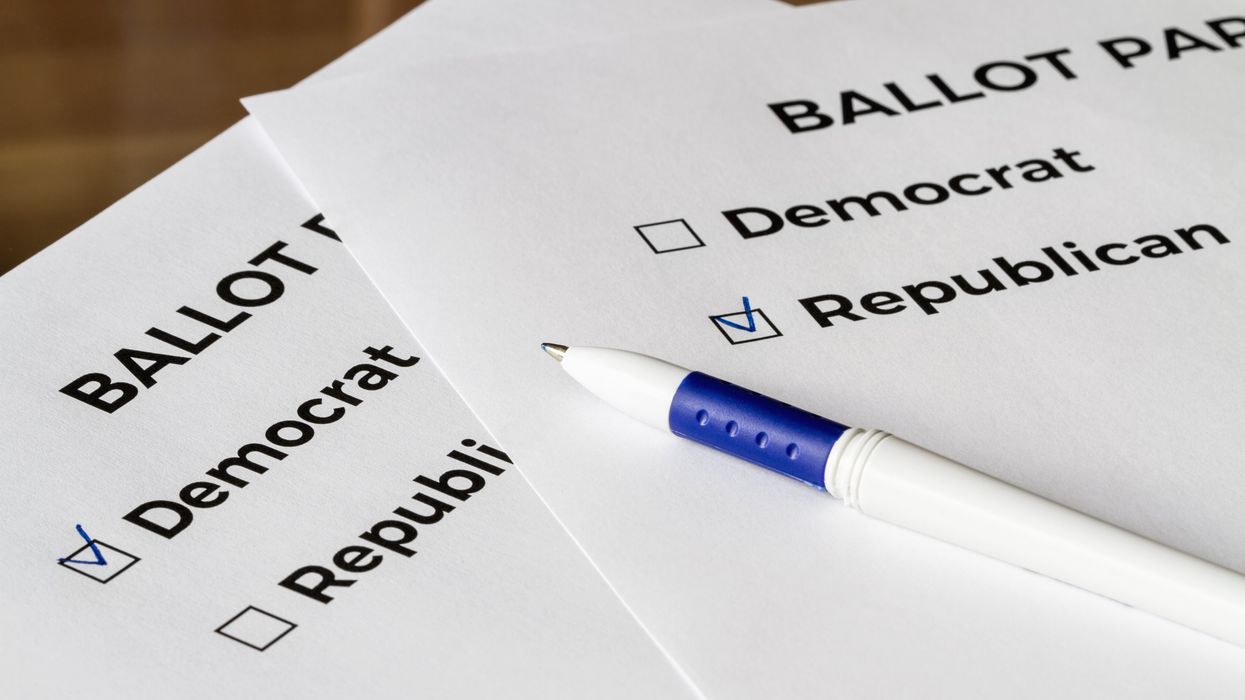Klug served in the House of Representatives from 1991 to 1999. He hosts the political podcast “ Lost in the Middle: America’s Political Orphans.”
A must-read for political junkies, Sabato’s Crystal Ball had bad news for fans of ticket splitting like me earlier this month: The once widespread practice has plummeted in recent presidential elections.
“Just 16 districts produced split results [in 2020]: 9 Republicans won districts carried by Joe Biden for president, and 7 Democrats won districts carried by Donald Trump. That was the lowest such total of the postwar era, surpassing the previous low of 26 in the 2012 election,” the newsletter reported.
But that doesn’t mean ticket splitting is no longer important. Pundits know in classic swing states it can provide the winning margin.
And the good news for fans like me is that the 2022 midterms gave us some hope.
That year, Vermont reelected a Republican governor who beat his opponent by a staggering 47 percentage points. Meanwhile, Democratic Sen. Peter Welch won another term by 40 points.
In Nevada, Democratic Sen. Catherine Cortez Masto won reelection, but voters tossed out the incumbent Democratic governor in favor of Republican Joe Lombardo.
The split-ticket pattern repeated in Kansas, New Hampshire, Georgia and Wisconsin. In fact, ticket splitting almost seems wired into Wisconsin’s political DNA.
Madison screenwriter and columnist (and, might I add, ticket splitter) John Roach struggles to explain it.
“It’s a puzzle to me. I am not sure it’s rational,” Roach said. “It’s almost like they don’t want to give too much power to one side. And Wisconsin voters try to balance it out in a kind of freestyle way.”
In the Georgia race for Senate, incumbent Raphael Warnock made a strategic decision to court ticket splitters by running an ad touting his bipartisan work with Texas Republican Sen. Ted Cruz. Naturally, his Democratic base was horrified.
Yet I think he had his finger on the pulse of American politics – 44 percent of American voters self-identify as centrists, according to a Brookings study. That's an enormous block of voters who are bewildered by the current political climate, in which the extremes pass for the norm.
“When we are at gridlock, which we are now as a country, then you want to think that there are people who can work across the aisle,” said Melita Easters, a Democratic consultant in Atlanta.
In Georgia, a mid-50s white suburbanite and long-time Republican voter wrestled with her decisions in 2022.
“I had always been a straight-ticket voter, and I was going to vote for Governor (Brian) Kemp," she said. "But I decided to split my ticket and vote for a Democrat for Senate. It was liberating. People should not be afraid to color outside the lines. What matters is getting it right.”
I agree. Hurray for the ticket splitters.
Listen to “ Lost in the Middle: America's Political Orphans ” to learn more about th e joys of ticket splitting.




















Trump & Hegseth gave Mark Kelly a huge 2028 gift